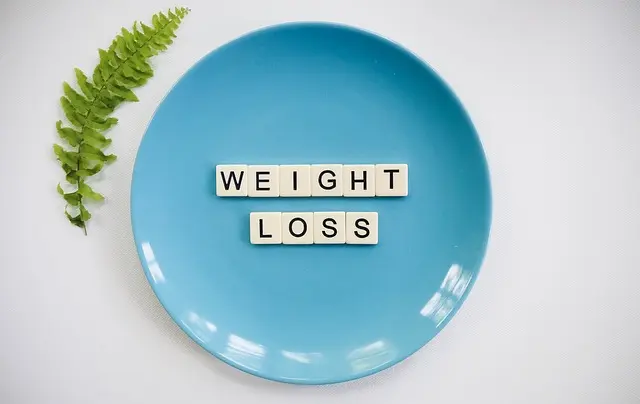Losing weight can be a challenging task for many people, but it’s an important aspect of overall health and wellness. There are many diets and weight loss programs available, each with its own unique approach to losing weight. This article will provide a comprehensive guide to the different types of weight loss diets and the benefits of each.
Healthy Eating
Healthy eating is a key component of any weight loss diet. The focus is on incorporating nutrient-dense whole foods, such as fruits, vegetables, whole grains, and lean proteins, into your diet. These foods are low in calories and high in fiber, which can help you feel full and satisfied. In addition, they are rich in vitamins, minerals, and other important nutrients that are essential for good health.
Calorie Counting
Calorie counting is a popular approach to weight loss, where you monitor the number of calories you consume each day. The goal is to create a calorie deficit, where you are consuming fewer calories than your body is burning, leading to weight loss. Keeping track of your calorie intake can be done using a food diary or an app, which makes it easier to monitor and adjust your diet as needed.
Meal Plan
A meal plan is a structured approach to eating that helps you to stay on track with your weight loss goals. A meal plan typically includes a set number of servings from each food group, and it outlines what you should eat for each meal and snack. Meal planning can help you to stay organized and ensure that you are getting the right balance of nutrients to support your weight loss goals.
Low-Carb Diet
A low-carb diet focuses on reducing the amount of carbohydrates in your diet. This type of diet has been shown to be effective for weight loss, as it can lead to a reduction in the number of calories consumed and an increase in fat burning. A low-carb diet typically includes foods such as meat, fish, eggs, and non-starchy vegetables, and it may also involve reducing the intake of processed foods, added sugars, and unhealthy fats.
Intermittent Fasting
Intermittent fasting is a pattern of eating where you alternate periods of eating with periods of fasting. This type of diet can be effective for weight loss, as it can help to reduce the overall number of calories consumed and boost the metabolism. Intermittent fasting can take several forms, including the 16/8 method, where you fast for 16 hours and eat during an 8-hour window, or the 5:2 diet, where you eat normally for five days and fast for two.
High-Protein Diet
A high-protein diet focuses on increasing the amount of protein in your diet, while reducing the intake of carbohydrates and unhealthy fats. This type of diet can be effective for weight loss, as protein is more satisfying and can help to reduce the number of calories consumed. A high-protein diet typically includes foods such as meat, fish, eggs, dairy products, and legumes.
Whole Foods
Whole foods are foods that are minimally processed and contain all of the nutrients and fiber of the original food. Eating a diet that is rich in whole foods can help you to achieve and maintain a healthy weight, as these foods are generally lower in calories and more filling. Whole foods include fruits, vegetables, whole grains, lean proteins, and healthy fats.
Portion Control
Portion control is a key aspect of weight loss, as it helps to reduce the number of calories consumed. This can be achieved by using smaller plates, measuring portions, or simply being mindful of how much you are eating at each meal. Portion control is an important part of any weight loss diet, as it helps to prevent overeating and ensures that you are consuming a balanced diet.
Fat-Burning Foods
Certain foods have been shown to boost metabolism and promote fat burning, making them an important part of a weight loss diet. These foods include protein-rich foods, such as lean meats and fish, as well as fiber-rich foods, such as fruits and vegetables. In addition, foods that are high in healthy fats, such as avocado, nuts, and seeds, can also be beneficial for weight loss, as they can help to reduce cravings and promote feelings of fullness.
Sugar-Free
Reducing the amount of added sugars in your diet is an important part of a weight loss diet, as added sugars are high in calories and can contribute to weight gain. A sugar-free diet typically involves reducing or eliminating foods that are high in added sugars, such as candy, soda, and baked goods. Instead, focus on consuming whole foods and natural sources of sugar, such as fruits.
Vegetarian Diet
A vegetarian diet is a plant-based diet that eliminates meat and animal products. This type of diet can be effective for weight loss, as it is typically low in calories and high in fiber, which can help to reduce the number of calories consumed and promote feelings of fullness. A vegetarian diet can include a variety of foods, such as fruits, vegetables, whole grains, legumes, and dairy products.
Keto Diet
The ketogenic diet, or keto diet, is a low-carb, high-fat diet that has been shown to be effective for weight loss. The goal of this diet is to put your body into a state of ketosis, where it burns fat for energy instead of carbohydrates. This type of diet typically includes foods such as meats, fish, eggs, dairy products, and non-starchy vegetables, and it may also involve reducing the intake of processed foods, added sugars, and unhealthy fats.
Mediterranean Diet
The Mediterranean diet is a way of eating that is based on the traditional foods consumed in the Mediterranean region. This type of diet is rich in healthy fats, such as olive oil, and it includes a variety of foods, such as fruits, vegetables, whole grains, lean proteins, and healthy fats. The Mediterranean diet has been shown to be effective for weight loss, as it can help to reduce the number of calories consumed and promote feelings of fullness.
Clean Eating
Clean eating is a term used to describe a diet that focuses on consuming whole, unprocessed foods. The goal of this type of diet is to eliminate processed and junk foods, and instead focus on consuming a variety of whole foods, such as fruits, vegetables, whole grains, and lean proteins. Clean eating can be effective for weight loss, as it can help to reduce the number of calories consumed and promote feelings of fullness.
Metabolism Boost
Boosting your metabolism can help to increase the number of calories burned, which can aid in weight loss. This can be achieved by incorporating high-protein foods, fiber-rich foods, and healthy fats into your diet, as well as engaging in regular physical activity. In addition, staying hydrated and getting enough sleep can also help to boost your metabolism and support weight loss.
Fiber-Rich Foods
Fiber-rich foods are an important part of a weight loss diet, as they can help to reduce the number of calories consumed and promote feelings of fullness. Foods that are high in fiber include fruits, vegetables, whole grains, and legumes. In addition, fiber can also help to regulate digestion and promote healthy gut bacteria, which can have a positive impact on overall health and weight management.
Healthy Fats
Healthy fats, such as those found in avocado, nuts, and seeds, can be an important part of a weight loss diet. These types of fats are essential for good health and can help to reduce cravings and promote feelings of fullness. In addition, healthy fats can also help to boost the metabolism and support weight loss.
Glycemic Index
The glycemic index is a measure of how quickly a food raises blood sugar levels. Foods that are high on the glycemic index, such as refined carbohydrates and added sugars, can cause rapid spikes in blood sugar, leading to weight gain. On the other hand, foods that are low on the glycemic index, such as whole grains and non-starchy vegetables, can help to regulate blood sugar levels and support weight loss.
Superfoods
Superfoods are nutrient-dense foods that are rich in vitamins, minerals, and other important nutrients. These foods, such as berries, leafy greens, and nuts, can help to support weight loss, as they are low in calories and high in fiber. In addition, consuming a diet that is rich in superfoods can also help to boost the metabolism, support overall health, and reduce the risk of chronic diseases.
Atkins Diet
The Atkins diet is a low-carb diet that has been shown to be effective for weight loss. This type of diet involves reducing the intake of carbohydrates, and instead, focusing on consuming high amounts of protein and healthy fats. The goal of the Atkins diet is to put the body into a state of ketosis, where it burns fat for energy instead of carbohydrates.
South Beach Diet
The South Beach diet is a low-carb, high-protein diet that has been shown to be effective for weight loss. This type of diet involves reducing the intake of carbohydrates and unhealthy fats, and instead, focusing on consuming a variety of healthy foods, such as lean proteins, whole grains, and vegetables. The South Beach diet is designed to promote weight loss, improve heart health, and reduce the risk of chronic diseases.
No Sugar Diet
A no sugar diet involves reducing or eliminating the intake of added sugars, such as those found in candy, soda, and baked goods. This type of diet can be effective for weight loss, as added sugars are high in calories and can contribute to weight gain. Instead, focus on consuming whole foods and natural sources of sugar, such as fruits.
Gluten-Free
A gluten-free diet involves eliminating foods that contain gluten, a protein found in wheat, barley, and rye. This type of diet can be effective for weight loss, as it may lead to a reduction in the number of calories consumed and an increase in nutrient-dense foods, such as fruits, vegetables, and lean proteins. In addition, a gluten-free diet can also be beneficial for those with celiac disease or gluten intolerance.
DASH Diet
The DASH diet is a dietary pattern that is rich in fruits, vegetables, whole grains, and lean proteins. This type of diet is low in sodium, added sugars, and unhealthy fats, and it has been shown to be effective for weight loss and reducing the risk of chronic diseases, such as heart disease and stroke.
Raw Food Diet
The raw food diet involves consuming unprocessed and uncooked foods, such as fruits, vegetables, nuts, and seeds. This type of diet can be effective for weight loss, as it is typically low in calories and high in fiber. In addition, a raw food diet can also promote overall health and wellness, as it is rich in vitamins, minerals, and other important nutrients.
Weight loss diets come in many different forms, each with its own unique approach to losing weight. The key to successful weight loss is finding a diet that works for you and incorporating healthy habits, such as portion control, healthy eating, and regular physical activity. Remember to consult with a healthcare professional before starting any new diet or weight loss program. With dedication and commitment, you can achieve your weight loss goals and maintain a healthy weight for life.







